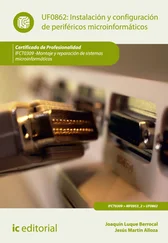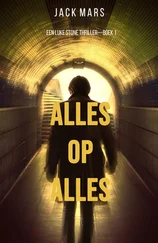Outside the Institute, a group of troops had dug deep trenches and built barricades. The building was pockmarked from incendiaries, but the huge white Blitzturm – the tower of lightning where the key experiments had been done – was intact. Now, however, it was simply serving as the perfect marker for the Soviet artillery.
The armoured car thudded to a halt and Goebbels, without a word, threw open his door and marched off towards the entrance of the Institute. Von Greim struggled out of the car, Reitsch handing him the crutches he needed to walk. He surveyed the scene.
It was clear that this defence of the Institute must have been planned for months and involved vast numbers of manpower and materiel. There were numerous concreted pillboxes, now pitted with shell marks, metres and metres of barbed wire, many sandbagged gun emplacements. Yet for how long could it hold back the Russians? A group of exhausted troops lay with their backs to the wall of the Institute, their faces smeared black with the dirt and sweat of the struggle, their eyes hollowed out by exhaustion.
‘Soldier, why are you here and not in the battle?’ Von Greim gently kicked the boot of one man.
A shell exploded overhead, briefly illuminating the soldier’s face. He was expecting to see a veteran, but it was just another dirt-stained boy defending the Reich.
‘What?’ the youngster looked up, angry. ‘We’ve been fighting the Russians, house by house, building by building, retreating all the way from Potsdam. We haven’t slept for three days, haven’t eaten for just as long, the schnapps is the only thing keeping us going. In an hour we’ll be back out there. Holding someone’s parlour, falling back into someone’s bedroom, before it all turns to shit like every house we’ve been in. And where will you be, General? Will you be with us? Or will you be tucked up in bed or eating bratwurst and drinking champagne?’
Von Greim thought about striking him for his insolence, but looked past him to the huddled ranks of his comrades. He could see from their exhausted faces, they had given everything. What right did he have to tell this teenager he should work harder? In an hour he would be back in the fire and he might not last beyond that. Without saying a word, von Greim pulled up on his crutches and hobbled towards the Institute’s entrance.
Goebbels led his charges through the corridors of the first floor. The impact of the Soviet assault was increasingly felt inside the building: broken windows, fallen masonry, discarded books and files strewn across the floor, a small huddle of exhausted men wrapped around a staircase which had come away from the floor above. Goebbels clearly knew the route well, taking them to a metal cage lift.
‘We have several floors to travel down, I’m afraid. I’m sure that will be not be a problem for the two finest aviators of the Reich?’ he smiled, a grin breaking out of his hollowed cheeks, the dark, sunken eyes that carried a strange power of their own.
They travelled for what must have been several hundred feet until the lift came to a halt. Down there, it was unearthly quiet, sterile and virginally clean. The tumult, the havoc of the world above seemed improbable. In the Führer’s bunker, it was impossible to forget what raged above: the smells, the dirt, sweat and filth that everyone brought with them saw to that. Not here. Not down the whitewashed corridors they walked, the lab-coated technicians they passed; there was no sense that the world they had come from seconds earlier even existed.
Through several corridors they moved, until finally they entered what von Greim and Reitsch took to be some form of control room full of metal cabinets, dials, electrodes and metres of colour-coded cabling. A bank of chairs stood in front of a long window which looked down on to a larger room, a hall almost, in the centre of which was a large cylinder of highly polished steel; along its front edge ran embedded green lights, flickering intermittently. The centre of the cylinder was hollow, with a slightly raised platform in the middle. It stood about two and a half metres in height and was close to forty metres in length. It was an impressive construction and von Greim and Reitsch exchanged looks of awe.
‘Only the Reich could build something as marvellous as this,’ Reitsch mumbled.
‘Yes, only a Nazi state would have the imagination and desire to achieve such things, Hanna,’ Goebbels agreed. ‘Come, let us take a closer view.’
They exited the control room and walked down a metal staircase to the floor of the hall, von Greim’s crutches clanging against the metal railing. Several technicians were busying themselves around the cylinder.
‘Herr Doktor Bewilogua,’ Goebbels addressed himself to the group. ‘I have arrived with Generalfeldmarschall von Greim and Frau Reitsch. Let us begin their briefing immediately.’
Ludwig Bewilogua, a small, owlish man, spectacles perched on his nose, turned to the group, clipboard in hand. ‘You are late. We have been waiting on you for too many hours.’ He handed the clipboard to an assistant. ‘Come, we have little time for your briefing. We cannot miss this window.’
Without further acknowledgement, he left them, walked past the cylinder and out of the hall, beckoning them to follow. Goebbels raised an eyebrow to von Greim. ‘Scientists. They lack finesse. Which is why we keep them in laboratories.’ Another hollow smile and then he gestured for von Greim and Reitsch to follow him.
They went out of the hall and back down another corridor until they entered a final room, an enormous hall, in which over two hundred men stood immediately to attention. They were dressed in a peculiar form of the field uniform of the SS: grey-green, four-pocketed, five-buttoned jackets, with the SS emblems on the collar replaced by silver swastikas, and on each sleeve, an eagle. And on their right arm, a red armband with another swastika. A belt pulled the waist in, accentuating the powerful chest and shoulders of each man. Slate-grey, straight-legged trousers and black leather jackboots finished the uniform. They looked magnificent. It was a long time since von Greim had seen such well-finished uniforms, a long time since he had seen such fit, healthy and well-fed soldiers.
Goebbels stepped forward.
‘Gentlemen, I give you your new leader Generalfeldmarschall Robert Ritter von Greim.’
‘Heil Hitler,’ they responded as one, each raising a perfect Nazi salute.
Von Greim returned the salute.
Goebbels continued: ‘This is your special force, General-feldmarschall, hand-picked men from elite SS units. They are all, as you would expect, most excellent specimens of Aryan superiority. They have been trained especially for this mission for the last six months. Each has expert knowledge of the terrain, the enemy, the weaponry, the tactics. Aside from these fighting men, you will also be aided in your mission by a number of experts from the highest levels of the Reich.
‘You know, of course, of the work of Hugo Schmeisser, the finest weapon designer in the world, creator of the Sturmgewehr 44, among many others.’
A balding, suited, bureaucratic-looking sixty-year-old man stepped forward, gave an awkward salute and a mumbled ‘Heil Hitler.’
Goebbels paid him no heed, moving on to another suited man, ‘And, of course, you know only too well Alfried Krupp von Bohlen und Halbach, our most respected Reichsminister für Rüstung und Kriegsproduktion.’
‘Alfried, of course, what a surprise to find you here in Berlin. I had thought you might have been captured in Essen.’
A tall, confident, patrician figure, Krupp was only thirty-seven and yet the leading German industrialist of the age, a supporter of the Nazis since the 1930s. He brushed past Schmeisser, warmly grasped both of von Greim’s hands and then kissed Reitsch on both cheeks. ‘Dear Hanna, Robert. Such a joy to see you both. I left the city the day before the Americans overran it. We at Krupp’s have been heavily involved in helping Doktor Bewilogua realise his vision here; it has been something of a special pet project for me. I came directly from Essen and begged the Führer to allow me to take part in this mission. Fortunately, he agreed and here I am. Unlike yourself, Robert, I lack military training, but my background in manufacturing, well, I hope it can greatly assist you.’
Читать дальше












